Planning the Ultimate RV Trip
Planning an RV trip is so exciting, whether it’s your first or 101st trip. Even just a small trip to a local state park, attraction, or nearby Boondockers Welcome location, still needs to be planned. Trips of any size require extensive preparation, especially with an RV. There are pre-trip inspections to consider, necessary maintenance to perform, and de-winterization (if applicable) to be handled. Then, there is the added process of actually planning your trip. If you’re feeling overwhelmed, take a deep breath and know that Boondockers Welcome has compiled a list of some of the best tips for helping to plan the ultimate RV trips.
1. Choose the Destination
When planning any road trip, you first need to select your destination. Some families enjoy visiting the same, familiar vacation spots while others prefer to explore new areas. Either way, the planning process is still fun and exciting. You can even consider including your kids in the decision of where to go. Their answers may surprise you.
Sometimes families will plan their trip together and even allow kids to choose sights along the way to visit. Other times, people enjoy surprising their children or spouse with the trip and pit stops. Either way, there is a neat (and free) app and website called Roadtrippers that allows you to plan the route to your destination and select fun stops along the way.
2. Plan the Details
Now that you know where you’re going, it’s time to plan your itinerary and the finer details. Having a rough idea of things you’d like to do at your destination(s) and how long you’ll have at each place is essential. Take some time to explore TripAdvisor (or similar sites) to determine some fun things to do around your destination. Don’t forget to include your pit stops as well. There are several free websites and apps that can help you plan your itinerary, such as Pebblar or TripIt.
Planning out an itinerary ahead of time will allow you to spend more time relaxing and less time stressing when you do finally reach your vacation destination. Be sure to look at nearby Boondockers Welcome locations. This can help you narrow down stops and organize your itinerary. After all, a safe, free place to stay beats a night at a truck stop or a Walmart parking lot any day.
3. Choose your Dates and Book
After you know where you’ll be going, it’s time to lock in your dates. Many travelers plan a buffer day or two when returning in the event of traffic or an accident. It’s also nice to have a day to rest before jumping back into work or school.
Campgrounds and popular attractions or destinations can become booked up pretty far in advance. It’s best to plan ahead as much as possible to give yourself a better chance to score the campsites and tickets you want. Some campgrounds in popular national parks can be booked up to six months in advance. Boondockers Welcome locations rarely fill up as quickly and can even be booked online!
4. Set a Budget
Once your reservations, bookings, and requests are all squared away, it’s time to set a budget.
Gas
Accurately calculating your gas budget can be tricky, especially for folks new to the RVing community. If you tow your RV, it can be a little easier to calculate if you already know approximately how much gas your truck or tow vehicle uses, with the added weight of your RV. Calculating the gas for a class A, B, or C can be even more difficult, especially if you don’t drive it often. If you don’t know your average miles per gallon, try looking up your year, make, and model on the internet to see if any other RVers have been able to calculate an estimate. Of course, without exact calculations, this will only be an estimate. However, it can give you a bit of an idea of how much gas money to set aside for your trip. It’s always better to overestimate and have money left over.
Souvenirs
Visiting new locations, especially ones that cater to tourists, is always exciting. National parks and other popular tourist attractions typically offer fun souvenirs. These make wonderful gifts or keepsakes of your adventures. Kids of all ages especially love souvenirs. Be sure to set a reasonable budget for each location you plan to visit. You can even check online to see if you can get an idea of how much books, stuffed animals, or other novelties cost at that location. This can help you feel more relaxed and prepared for the costs.
Pro tip: All national parks participate in a passport program. The passport is a one-time purchase, and each national park has a corresponding stamp for their special park. When you visit a new park, you get a new stamp complete with the date so you never forget that special day. This can be an affordable, yet fun way to allow kids to get a souvenir at every national park in the United States.
Food
Depending on the destinations that are planned, cooking in your RV can be a great way to stretch your budget further. Having a kitchen-on-wheels is just one of the many perks of RVing that can also make your trip more cost-effective. However, we understand that cooking on vacation can be a real damper. After all, trying foods in new locations is all part of the fun of traveling. For RV vacations, we suggest a mix of cooking and going out to eat in order to balance your budget a little more easily. It can be especially helpful that seventy-five-percent of Boondockers Welcome locations have partial hookups. This can make cooking and cleaning up that much easier.
When traveling, try to think about your typical weekly grocery budget and cut that in half (don’t forget to budget in snacks for travel days!). Then you can begin to determine the necessary funds for your restaurant and take-out budget. If you’re going somewhere entirely new, you can research some general restaurants that you may want to go to in order to get an estimate of your take-out budget.
5. Start Packing!
It’s essential to pack ahead of time. This reduces stress and means you are less likely to forget anything important. We’ve outlined some packing essentials in all the important categories.
Basics
The basics will look a little different for everyone. Some of these items may be deemed essential, but could be considered “extras” in your book. This is just a rough idea of items commonly-packed in RVs that can help you to start your own list.
Kitchen Items
- cups and mugs
- plates
- bowls
- utensils (forks/knives/spoons)
- napkins
- paper towels
- cooking utensils (tongs, big spoons, ladles, etc.)
- can opener
- frying pan
- large pot
- sheet pan
- potholders
- dish towels
- sponge
- dish soap
- plastic wrap
- aluminum foil
- ziploc bags (sandwich, quart, & gallon)
- cleaning wipes
- tupperware containers
- matches and/or lighter
Toiletries
- first-aid kit
- peroxide, rubbing alcohol
- pain relief medications (acetaminophen, naproxen, aspirin, ibuprofen, etc.)
- dramamine for motion sickness
- any other medications you may need
- hand soap
- face wash
- body wash
- loofah and/or washcloths
- shampoo
- conditioner
- razors
- shaving cream
- hairbrush / comb
- hairdryer
- hair gel /styling products
- moisturizer
- lotion
- toothpaste
- tooth brushes
- floss
- mouthwash
- nail clippers
- tweezers
- hair ties / clips
- makeup
- cotton balls / q-tips
- sunscreen
- bug spray
Clothing
- long sleeve shirts
- short sleeve shirts
- jackets / sweatshirts
- pants
- shorts
- bathing suit
- socks & underwear
- shoes (sneakers, sandals, hiking boots, etc.)
- rain gear
- hats
Outdoor Gear
- wood for fires (please note that most states do not allow firewood to be transported across state lines)
- hammock
- camp chairs / table
- binoculars
- backpack
- fishing rod(s) & tackle
- sports equipment (football, baseball & bat, etc.)
- water bottle
- bikes
- canoe or kayaks, paddles, life jackets
- inner tubes
- hiking poles
- Miscellaneous
- pillows & pillow cases
- sheets
- bedding
- towels
- alarm clock
- extra blankets
- pet supplies (food, bowls, toys, treats, leash & collar, bed, vaccination records)
- sewing kit
- phone chargers
- laptop/tablet and chargers
- DVDs
- watch
- cleaning supplies (all-purpose cleaner, bathroom/tub cleaner, wipes, windex)
- laundry detergent & dryer sheets
- broom/dustpan, vacuum, mop
- cash
- reservation confirmations
- playing cards
- board games
- books
- puzzles
- speaker / radio
- handheld video games
Emergency Kit
Every RV should have an emergency kit. After all, when the worst happens, you want to be prepared. An emergency could happen during inclement weather, a car accident, a fire, or any other disaster, and these supplies will really come in handy and can be lifesaving. It’s nearly impossible to grab all of the essentials while an emergency is happening. For this reason, an emergency kit should already be assembled and set aside near the front door of your RV or in an outside storage bay.
Supplies
- Food and Water
- Canned food or military meals
- Meal bars with high caloric counts
- Pouches, boxes, or bottles of water
- Water purification tablets, systems, or Life Straws
- Medical Supplies
- Bandages
- Velcro elastic bandage
- Gauze
- Alcohol wipes
- Burn cream
- Antiseptic wipes
- Antibiotic cream
- Antibacterial wipes
- Hydrocortisone cream
- Medical tape
- Splint
- Tweezers
- Scissors
- Safety pins
- Nitrile or vinyl loves
- Hand sanitizer
- Face mask
- Thermometer
- CPR shield
- First aid pocket guide
- Sunscreen
- Acetaminophen, ibuprofen, benadryl, etc.
- A few days worth of prescription medications, if applicable
- Roadside Equipment
- Hazard triangles
- Neon vest
- Jumper cables
- Flares (also available in LED)
- Tow straps
- Traction mats
- Tire chains
- Tire plug kit
- Jump starter
- Air compressor
- A spare tire
- Weather Gear
- Hand Warmers/body warmers
- Poncho
- Thermal survival blanket
- Fire starter
- Waterproof matches
- Small tent
- Hygiene Items
- Toothbrush and toothpaste
- Soap
- Shampoo/conditioner
- Facial Tissues
- Moist towelettes
- Sanitary products
- Contact solution and case
- Miscellaneous
- Extra clothing
- Safety glasses
- Heavy-duty gloves
- Heavy-duty, waterproof flashlight with additional batteries or LED flashlight
- Whistle
- Multi-tool
- Heavy-duty pocket knife
- Compass
- Window breaker/seatbelt cutter tool (this should be kept outside of the kit near where you’re driving)
- Survival pocket guide
- Solar radio
- Variety battery pack with waterproof battery organizer
- Spare phone chargers and power bank
- List of emergency contacts with phone numbers and addresses, and medical information
- Copies of important documents (passports, insurance, etc.)
- Extra pet food, a few days of pet medications, copies of vet records, etc.
Meal Planning
As stated above, mixing cooking and going out to eat can help stretch your budget. It’s best to plan ahead with the meals you intend to cook. Running low on ideas? Boondockers Welcome has a handy blog post outlining some of our favorite easy meals for inspiration. We’ve also included a list of some of the basics that most RVers would want to pack, depending on the length of the trip.
Food
- cereal
- milk
- salt, pepper, spices
- condiments (mustard, mayo, ketchup, relish, BBQ sauce, salad dressing)
- cooking oils
- meats (chicken, hot dogs, brats, burgers, etc.)
- fruits & vegetables
- pancake mix
- peanut butter & jelly
- lunchmeat & cheese
- bread
- canned foods
- s’mores ingredients
- eggs
- oatmeal
- coffee & tea
- baking essentials (flour, sugar, baking soda, etc.)
- snacks (chips, cookies, trail mix, granola bars, jerky, popcorn, etc.)
Breaking down planning a trip into digestible steps is the easiest method. You could even complete one task per week until it’s all completed. We hope you’ll use these tips when planning your future RV trips and visiting Boondockers Welcome locations!
What are your tried and true tips to planning your trips? Where will you be hitting the road this spring? Tell us all about it in the comments below!
Learn More About Boondockers Welcome
We promise not to spam you!


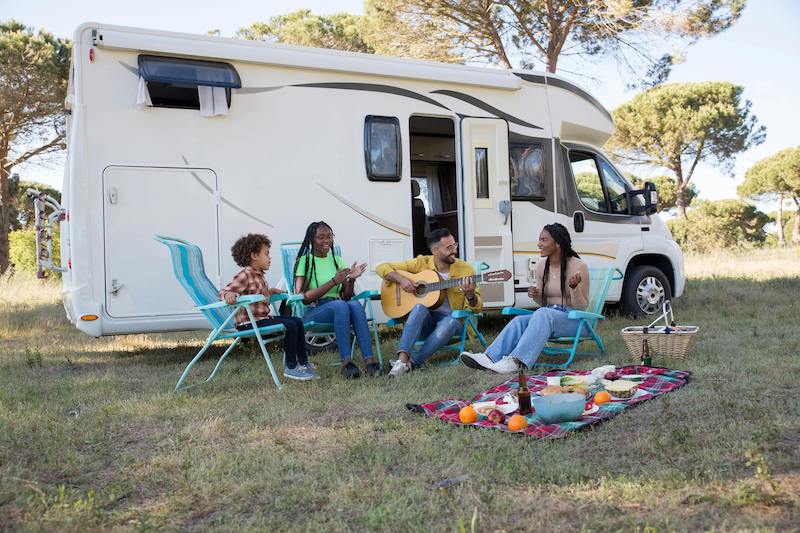
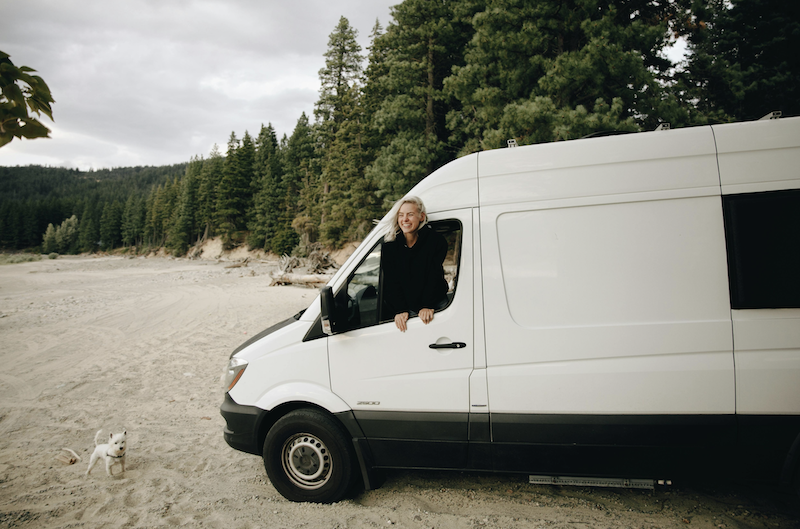

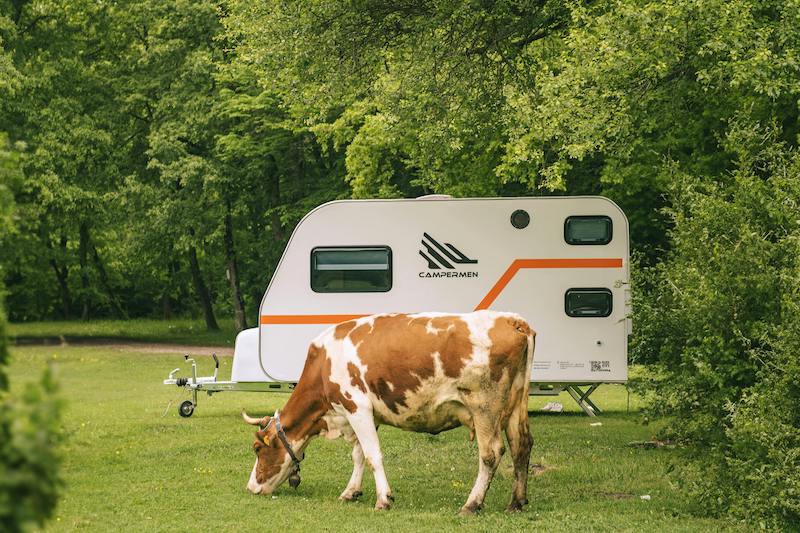
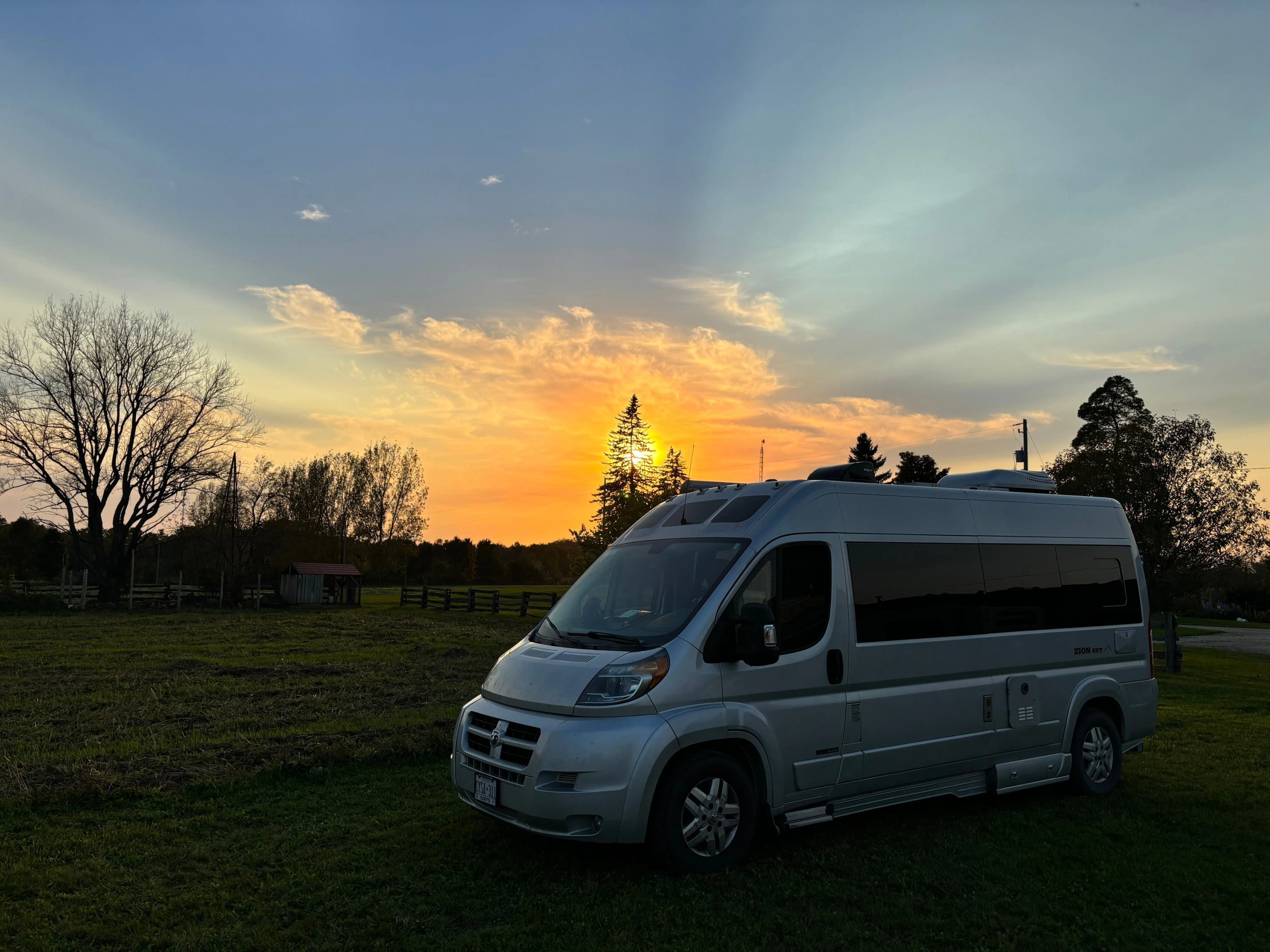
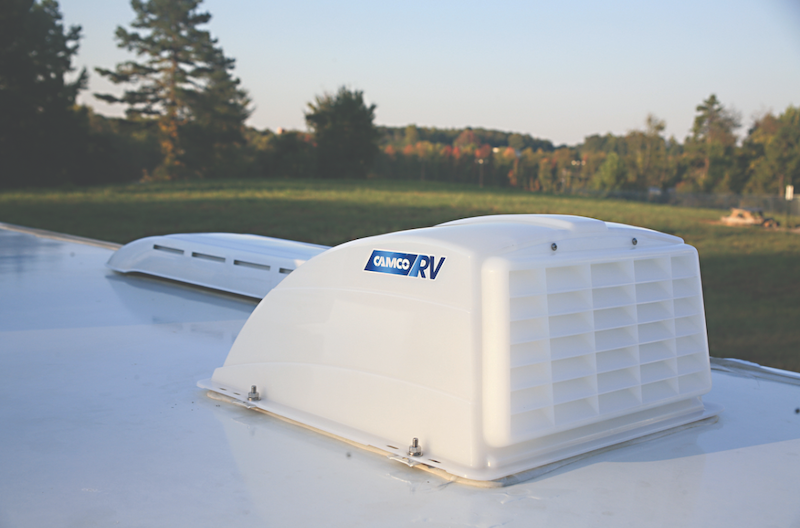
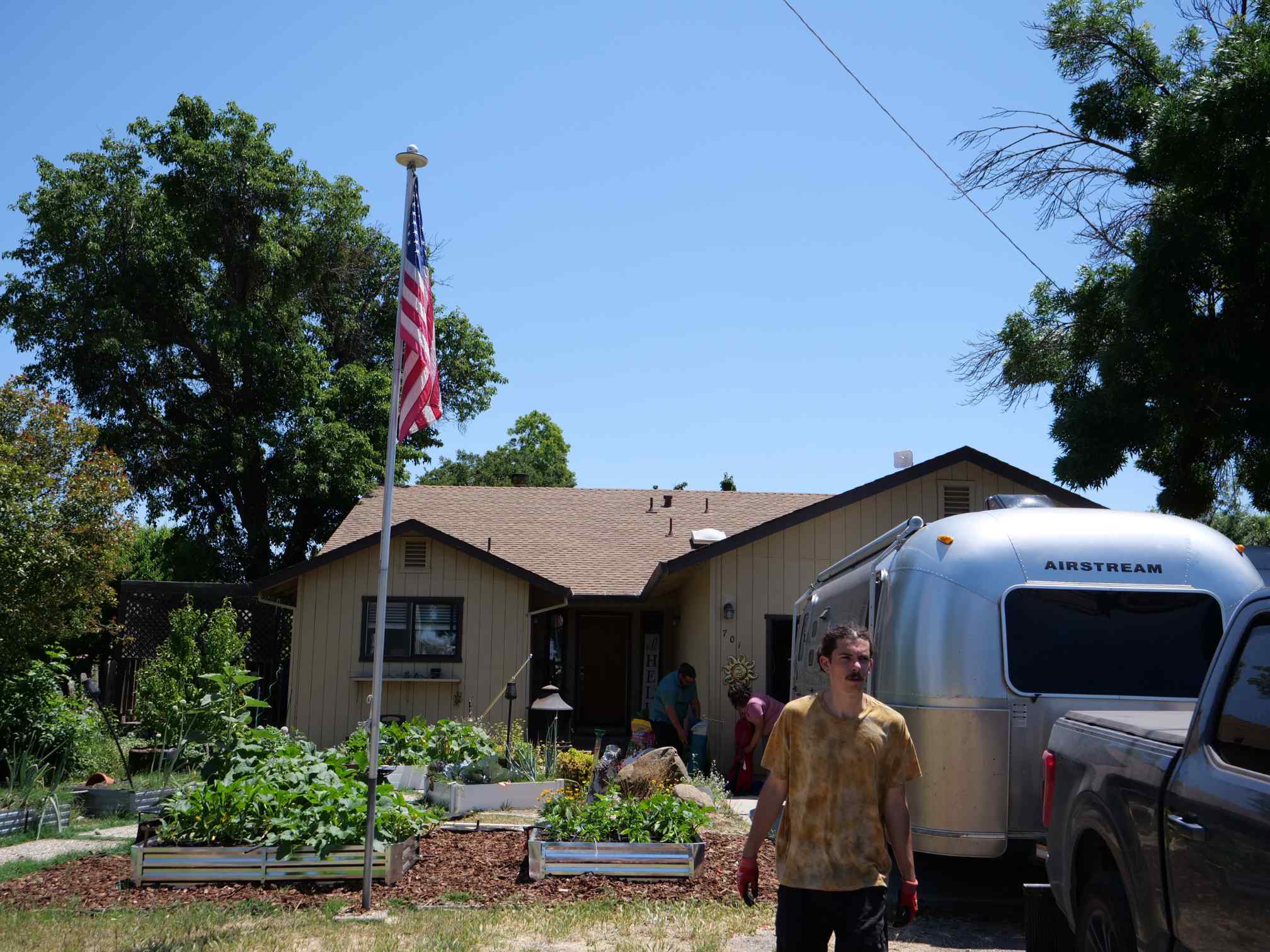
But you can also take the time to educate yourself, Karz Auto Insurance Guidelines and insurance agency product reviews, and, of course, the fine print on any policy you’re considering. And don’t discount the RV community as a resource. Talk with other, experienced RV enthusiasts or join an online RV discussion board. Take advantage of the collective wisdom of others who share your passion and lifestyle.